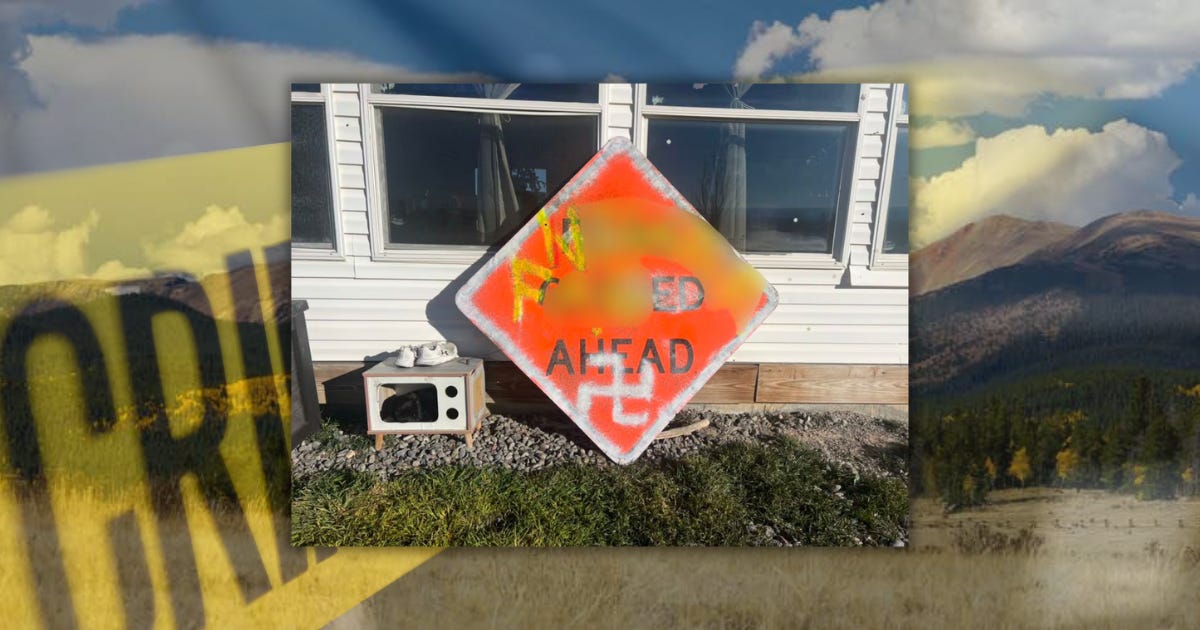Teen’s Car Vandalized with Swastika, Authorities Decline to Call It a Hate Crime
In the quiet town of Olathe, Colorado, a family’s vacation was shattered by an act of vandalism that left a teenager’s car defaced with slurs and offensive symbols.
In the quiet town of Olathe, Colorado, a family’s vacation was shattered by an act of vandalism that left a teenager’s car defaced with slurs and offensive symbols. While his family was away, a friend checking on their home discovered a road sign covered in hateful graffiti left on the boy’s vehicle—a disturbing message that his mother, Tiffany Abatti, is calling a hate crime. Authorities, however, disagree.
“I called the police and made a report, but I didn’t hear anything back that day,” Abatti said. “They called me the next day and said it would not be considered a hate crime because they can’t determine that it’s racially motivated.”
The new Seventh Judicial District Attorney, Anna Cooling, backed the decision, citing Colorado’s bias-motivated crime statute, CRS 18-9-121. “Per the statute, the incident was not a hate crime, as the facts of the case do not meet the elements required by law,” Cooling stated.
But for Abatti, this is not an isolated event. She claims her son has been targeted multiple times—his car egged, harassed at work, and now this. She believes law enforcement needs to do more.
“I want the police to show proof that there are escalating events, and I want the vandals charged with a hate crime,” Abatti said, frustrated by what she sees as a pattern of targeted harassment.
Beyond her own son’s experience, Abatti says this kind of behavior is all too common in rural communities like hers, where she believes minorities face discrimination without consequences for the perpetrators.
“I feel like in smaller communities, a lot of minorities really get the short end of the stick. It shows that people’s actions can go without consequences,” she said, calling for more awareness and accountability.
Colorado’s bias-motivated crime statute states that a person commits a hate crime if they target someone “in whole or in part” because of their race, color, religion, ancestry, national origin, disability, or sexual orientation—whether through bodily harm, threats, or property damage. Abatti argues that her son’s case fits this description, but without direct evidence tying the crime to racial motivation, officials refuse to classify it as such.
For now, the family is left seeking justice, unsure if their voices will be heard. But Abatti hopes that by speaking out, she can shine a light on the discrimination many in small towns endure—and demand action before it escalates further.


